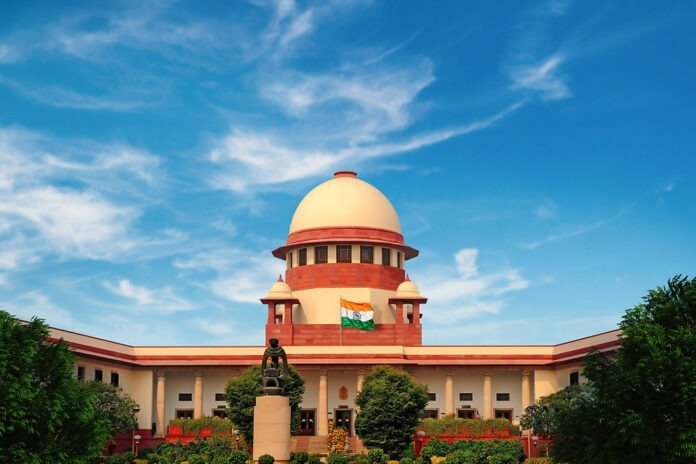ECI asserts its authority to verify citizenship during Bihar electoral roll revision, countering legal challenges in Supreme Court.
In response to Supreme Court petitions, the Election Commission affirms its legal mandate to verify citizenship under the Special Revision process in Bihar.
Amid rising concerns over the Special Intensive Revision (SIR) of electoral rolls in Bihar, the Election Commission of India (ECI) has taken a firm stance before the Supreme Court, asserting that it holds the authority to verify the citizenship of individuals during the voter registration process.
In a counter-affidavit filed in a batch of petitions challenging the ongoing SIR process, the ECI emphasised its constitutional and statutory duty to ensure that only Indian citizens are registered to vote. This rebuttal comes in response to arguments from various petitioners who have claimed that the Commission is exceeding its jurisdiction by demanding citizenship proof from voters.
“The process of electoral roll revision must necessarily involve scrutiny of citizenship status. It is a statutory responsibility vested with the Commission to ensure that the electoral roll contains only those who qualify under the law,” the ECI stated in its filing.
The matter, which is currently being heard by a Bench led by Chief Justice D.Y. Chandrachud, has significant legal and political ramifications. The Court has clubbed multiple petitions, including those from civil society groups, political parties, and individual citizens, who argue that the SIR disproportionately targets marginalised communities under the guise of voter verification.
What is the Bihar SIR?
The Special Intensive Revision was launched in Bihar earlier this year, purportedly to update and clean up the voter lists ahead of the 2025 state elections. However, concerns have arisen over the arbitrary demand for citizenship documents, which critics say may disenfranchise eligible voters—especially those from minority groups, Dalits, and migrant populations.
Petitioners contend that no provision under the Representation of the People Act, 1950 empowers the Commission to act as a quasi-immigration body. “This exercise shifts the burden of proof unfairly onto ordinary citizens, many of whom lack access to legacy documents,” argued senior advocate Indira Jaising, appearing for one of the petitioners.
The ECI, however, countered that Section 16 of the Representation of the People Act clearly disqualifies non-citizens from voter registration, making it necessary to verify the applicant’s nationality during revision exercises.
Legal Justification and Precedents
The Commission cited earlier judgments that reaffirm its wide powers under Article 324 of the Constitution, which vests in it the superintendence, direction, and control of elections. The affidavit underlined that citizenship verification is not arbitrary but necessary, and consistent with the duty to maintain “a free and fair electoral process.”
In particular, the Commission invoked the Supreme Court’s 2013 ruling in People’s Union for Civil Liberties v. Union of India, which underscored the importance of purity of the electoral rolls in preserving the democratic fabric of the nation.
“Citizenship is not a subjective assumption. It is a legal status, and verification mechanisms are crucial to prevent electoral fraud,” the Commission noted.
The Court, while hearing preliminary arguments, observed that the balance between electoral integrity and civil rights must be delicately maintained. Chief Justice Chandrachud remarked, “We will examine whether the ECI’s approach aligns with the constitutional principle of reasonableness and fairness.”
Political Reactions and Public Concerns
The issue has sparked political debates across Bihar and beyond. Several opposition parties, including the RJD and Congress, have accused the Commission of conducting a clandestine voter purge. “This is an indirect NRC in the garb of revision. Targeted documentation drives are a threat to democracy,” said Tejashwi Yadav, Leader of Opposition in the Bihar Assembly.
In contrast, the ruling BJP has defended the move, calling it “a necessary check to prevent ghost voting and protect genuine voters.”
Legal experts remain divided. Some argue that the absence of a uniform standard for citizenship verification risks enabling discrimination, while others maintain that the Commission must be given the tools to clean up bloated voter rolls.
What Lies Ahead?
The Supreme Court is expected to resume hearings next week, during which it will evaluate whether the SIR guidelines breach constitutional safeguards such as equality (Article 14) and protection of personal liberty (Article 21). Observers believe that the outcome of this case could have national ramifications, particularly in states with similar demographic and political sensitivities.
Meanwhile, public interest organisations have demanded that the Election Commission pause the SIR exercise until a final verdict is reached. A PIL seeking a nationwide standard for voter verification has also been tagged with the Bihar case.
For ongoing coverage of the case and detailed analysis of electoral laws, visit The Legal Observer’s National News section.
To explore critical views and legal debates on citizenship issues and election law, you can follow the Insight and Debate sections on our website.
Watch expert legal commentary on the case and similar topics at @thelegalobserver on YouTube.




